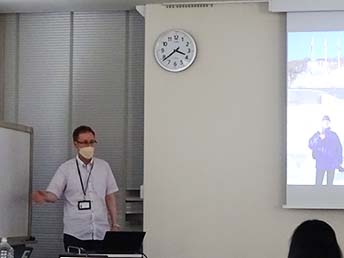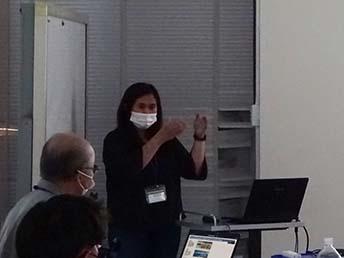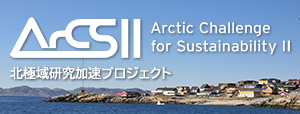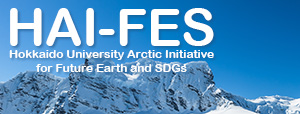

| Date & Time | Tuesday, July 19, 2022, 15:20-17:00 |
| Place | Seminar Rooms B and C, Sousei Bldg. 4F |
| Method | Hybrid | Participant | 20 people (including 6 online) |
| Lecturer 1: Juha Saunavaara (ARC) Presentation Title: Telecommunication and transport infrastructure development in the Arctic and other ongoing research projects Abstract: After a short review of other ongoing research projects the speaker is involved in, this presentation focuses on the past, present and future challenges/possibilities related to telecommunication and transport infrastructure development in the Arctic. The issues to be discussed include but are not limited to the questions of social responsibility (often involving questions concerning the rights of indigenous people), environmental impact, economic feasibility, and the relationship between critical infrastructure and industrial development. Although some examples can be drawn from other Arctic regions, this presentation mainly concentrates on European High North.” |
|
| Lecturer 2: Irene Alabia (ARC) Presentation Title: Pan-Arctic marine biodiversity patterns under recent climate Abstract: The Arctic is experiencing drastic climatic changes bringing about potential ecological surprises. Here, we explored marine biodiversity and potential species co-occurrences across eight Arctic marine areas from 2000-2019. We compiled occurrence data for 69 marine taxa, along with environmental factors to predict taxon-specific spatial distributions. Using multi-ensemble model outputs, we examined spatio-temporal biodiversity and species co-occurrence patterns over time and between contrasting periods of summer sea ice conditions. Overall, we captured increasing trends in species richness over time, except in the Arctic basin. However, declines in the species richness and frequency of species co-occurrence between high and low sea ice periods were observed in the Davis-Baffin Bay and Hudson Complex, with the latter registering a lower number of species than the former. Contrarily, continental slopes and adjacent regions of the Pacific Arctic and the Beaufort Sea, along with the Atlantic Arctic and Kara-Laptev Sea showed increases in species richness and species pair-wise co-occurrences. These emerged in response to the modeled northward habitat range expansions, especially for wide-ranging apex predators, under low summer sea ice conditions. Our results show disproportionate regional impacts of warming and sea ice loss in the Arctic and provide relevant insights on potential region-wise vulnerability to recent climate changes. |
|








